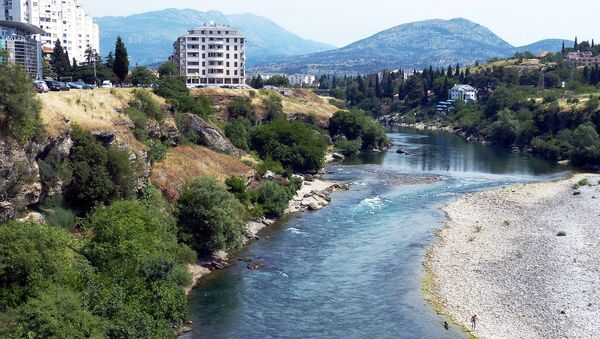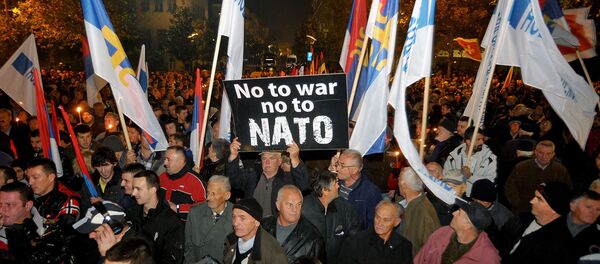“Russia responded to Montenegro’s accession to NATO, we are ready for that because my country has no alternative. I repeat – we want closer ties with Russia. We want to sell it tomatoes and cabbages, and other goods. But we have no alternative. Our choice is the EU and NATO,” Zaev said.
In an interview with Sputnik Serbia, Stevan Gajic, from the Institute of European Studies in Belgrade, said that Zoran Zaev was exaggerating Russia’s influence on Macedonia to justify a “different influence.”
In the spring of 2017 Macedonian President Gjorge Ivanov refused to let Zoran Zaev, the leader of the SDSM party, form the cabinet fearing that this could undermine the country’s constitutional makeup, unity and territorial integrity.
Ivanov eventually bowed to strong Western pressure and allowed Zaev to form the government.
As for Talat Xhaferi, in the early 2000s he commanded units of Albanian separatists fighting Macedonian security forces.
Stevan Gajic explained the pro-Russian sentiment in Serbia and Macedonia not by any pressure from Russia, but by the people’s rejection of Western pressure on the country’s leadership.
“Macedonians worry about their country’s name and its future in general,” Gajic noted.
Macedonia is ready to join NATO under the name of the Former Yugoslav Republic of Macedonia (FYROM), which Greece insists on.
Zoran Zaev said, however, that once in NATO, Macedonia would settle the dispute with the Greeks.
Macedonia’s former ambassador to Russia, Risto Nikovski, denied any Russian pressure on Macedonia, adding that Russian officials had previously told him that Moscow has nothing against Macedonia’s accession to NATO.
“However, this was before the events in Ukraine when NATO emerged as an aggressor. After that, Russia’s position on NATO’s increased presence in the Balkans changed. This does not mean, however, that Moscow is exerting any pressure on Macedonia,” Nikovski emphasized.
Both Gajic and Nikovski said that Zoran Zaev’s statement was just a nod to US Vice President Mike Pence, who praised Montenegro for its ability to stand up to “Russian pressure,” and also to State Department representative Brian Hoyt Yee who, during a recent visit to Belgrade, said that Serbia “cannot sit on two chairs, especially if those chairs are too far apart."
Macedonia joined NATO's Partnership for Peace in 1995 and the Membership Action Plan in 1999, which is a program that offers advice, assistance and support to countries seeking to join the alliance.




